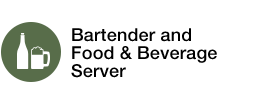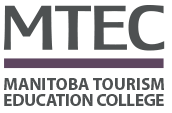Sexual Violence Policy and Response Protocol
Download the MTEC Sexual Violence Policy and Response Protocol here
Issued By: Shannon Fontaine, CEO
Effective Date: July 1, 2017
Last Revised: November 28, 2022
Next Review Date: November 28, 2026
1. PURPOSE AND INTRODUCTION
The Manitoba Tourism Education College (hereinafter referred to as MTEC) is committed to the health, safety and wellbeing of all staff, administrators, instructors and students. MTEC recognizes sexual violence as an issue and is committed to raise awareness and prevention of sexual violence, including sexual violence through the use of social media, including Facebook, and other forms of digital communications including our website.
At MTEC we also recognize that some populations are more vulnerable to sexual violence than others and seek to accommodate those individuals to the greatest extent possible (ex. Indigenous women, women living with cogitative or physical disabilities, newcomer women and women from ethnocultural communities, individuals within the LGBT2SQ+ community, international students). MTEC will provide disclosure options to accommodate vulnerable populations (ex. making a female available to hear a complaint recognizing that women are far more likely to be victim of sexual violence).
2. DEFINITIONS
i. Sexual violence e is defined as any sexual act or act targeting a person's sexuality, gender identity or gender expression — whether the act is physical or psychological in nature — that is committed, threatened or attempted against a person without the person's consent, and includes sexual assault, sexual harassment, stalking, indecent exposure, voyeurism and sexual exploitation.
ii. Consent means that both people in a sexual encounter must agree to it, and either person may decide at any time that they no longer consent and want to stop the activity. Consenting to one behavior does not obligate a person to consent to any other behaviors. Consenting on one occasion also does not obligate a person to consent on any other occasion. Consent must be voluntary, enthusiastic and sober.
iii. “Complainant”: for the purpose of this Policy means an individual who identifies their experience as Sexual Violence.
iv. “Person Accused”: : for the purpose of this Policy means any person against whom an allegation or formal complaint of Sexual Violence is made.
v. Cyber Harassment/Cyber Stalking Often; used interchangeably, cyber harassment and cyber stalking are defined as repeated, unsolicited, threatening behaviour by a person or group using cell phone or Internet technology with the intent to bully, harass, and intimidate a victim. The harassment can take place in any electronic environment where communication with others is possible, such as on social networking sites, on message boards, in chat rooms, through text messages, or through email.
vi. Date Rape; The term “date rape” is interchangeable with “acquaintance sexual assault”. It is sexual contact that is forced, manipulated, or coerced by a partner, friend or acquaintance.
vii. Disclosure; For the purposes of this document, a disclosure is made to any individual other than the police or other judicial official.
viii. LGBT2SQ+; The LGBT2SQ+ community includes people who identify as lesbian, gay, bisexual, transgender, Two-Spirit, queer, questioning, intersex, asexual, pansexual and/or gender fluid.
ix. Rape: Rape is a term used to describe vaginal, oral or anal intercourse, without consent. Although the term is no longer used in a legal sense in Canada, it is still commonly used and widely understood.
x. Sexual assault: Sexual assault is any type of unwanted sexual act done by one person to another that violates the sexual integrity of the victim. Sexual assault is characterized by a broad range of behaviours that involve the use of force, threats, or control towards a person, which makes that person feel uncomfortable, distressed, frightened, threatened, carried out in circumstances in which the person has not freely agreed, consented to, or is incapable of consenting to. Sexual assault is a crime.
xi. Sexual harassment: Sexual harassment is unwanted sexual attention directed at an individual by someone whose conduct including comments, gestures, and/or actions are offensive, inappropriate, intimidating, hostile, and unwelcome. Sexual harassment often occurs in environments in which sexist or homophobic jokes and materials have been allowed.
xii. Sexual violence: Any sexual act or act targeting a person’s sexuality, gender identity or gender expression — whether the act is physical or psychological in nature — that is committed, threatened or attempted against a person without the person’s consent, and includes sexual assault, sexual harassment, stalking, indecent exposure, voyeurism and sexual exploitation
xiii. Stalking: Stalking is a crime called criminal harassment. Stalking consists of repeated behavior that is carried out over a period of time, and which causes a person to reasonably fear for their safety.
xiv. Victim blaming: : Victim blaming occurs when the victim of a crime or an accident is held responsible — in whole or in part — for the crimes that have been committed against them.
3. POLICY
PART ONE – EDUCATION AND AWARENESS
Disclosure:
- Anyone can disclose information regarding Sexual Violence. A disclosure does not normally trigger an investigation or formal procedure, but may
result in Supports. - No actions can be taken against a Person Accused solely on the basis of a Disclosure.
- Disclosures which raise a reasonable concern regarding broader public safety may result in information being shared with the City of Winnipeg
Police Service. - Ensure students are educated through orientation on the true meaning of consent, the procedures to take when consent has not been given and an act of sexual violence has been committed. Consent must be voluntary, enthusiastic and sober.
Supports:
Once a disclosure is made and regardless of whether a formal complaint is submitted, MTEC will provide Supports which will be sensitive to the circumstances identified by the Complainant and will allow Complainants to:
- be treated with compassion, dignity and respect;
- be informed about community resources;
- be informed about disclosing and reporting options and the limits to confidentiality associated with each option;
- be provided with appropriate forms of academic consideration and other supports based on demonstrated need;
- be provided with assistance in formulating a safety plan (a set of objectives and strategies identified by the Complainant to help promote ongoing safety and prevent future incidents);
- decide whether to file a formal complaint internally (within MTEC) or external to MTEC; and
- have reasonable and necessary actions taken to prevent further unwanted contact with the Person Accused.
Consent:
Consent is central to sexual assault. The Criminal Code of Canada defines consent as it relates to sexual assault as the voluntary agreement to engage in sexual activity. An individual must actively and willingly give consent to sexual activity. Simply stated, sexual activity without consent is sexual assault. Young people, like many others, often do not fully understand consent and can feel that the line between consensual sexual acts and sexual assault can be unclear. This is particularly true when an acquaintance, friend, or partner is the perpetrator.
Young people, like many others, often do not fully understand consent and can feel that the line between consensual sexual acts and sexual assault can be unclear. This is particularly true when an acquaintance, friend, or partner is the perpetrator.
Consenting to one kind, or instance, of sexual activity does not mean that consent is given to any other sexual activity or instance. No one consents to being sexually assaulted. Where consent does not exist (lack of agreement): a person can express a lack of agreement verbally or through conduct (such as physically resisting advances). The Criminal Code makes it clear that a person can, after initially giving consent to engage in sex, revoke consent at any time by expressing a lack of agreement to continue engaging in sexual activity.
In other words, consent:
- Is never assumed or implied
- Is not silence or the absence of “no”
- Cannot be given if the victim is impaired by alcohol or drugs, or is unconscious
- Can never be obtained through threats or coercion
- Can be revoked at any time
- Cannot be obtained if the perpetrator abuses a position of trust, power or authority
For the purposes of this policy and procedures, keep in mind: it is not for the the college to weigh into whether or not consent has been given. This legislation is asking institutions to include issues related to consent within their policy, not examine or investigate sexual assault allegations.
PART TWO – COMPLAINT AND RESPONSE PROTOCOL
A Complainant may bring forward any instances they identify as Sexual Violence to the Health and Safety Representative at MTEC. The Health and Safety Representative will ensure the complainant is not compelled, nor restricted from pursuing the issue through law enforcement at any time.
Victims of sexual violence will be made aware of all of the complaint/disclosure options available and will be made aware that they may choose any option, or combination thereof, at any point in time. These options may include:
1. No report – the victim/survivor discloses sexual violence to seek emotional support, medical support, or advocacy but not to report to police.
2. Police report – the victim/survivor makes a police statement, which would generally be followed by a criminal investigation. Victims/survivors can call the police or go to their nearest police station. There are support services available for individuals who decide to report to police.
3. Medical assistance/forensic medical exam – – the victim/survivor attends a hospital or medical centre for medical attention to address possible physical injury, pregnancy and/or sexually transmitted infections; forensic exam to collect any forensic samples while the victim/survivor decides whether or not to report to police.
- In Winnipeg, within 120 Hours (5 days) from the sexual assault, survivors can go to the emergency department of the Health Sciences Centre (use the William Avenue entrance or call 204-787-3167). They should tell the triage nurse that they have been sexually assaulted and/or that you would like to see the Sexual Assault Nurse Examiner (SANE) nurse. Support workers from the Klinic Sexual Assault Crisis Program are available to accompany victims/survivors to hospitals or medical centres in Winnipeg. If the survivor/victim does decide to report the assault, the SANE nurse will call the police on their behalf. A Winnipeg Police Service detective with the Sex Crimes Unit will come to the hospital in plain clothes to speak with the victim/survivor or will contact the victim/survivor within 24 hours (if unavailable at the time of exam).
- In Winnipeg, beyond 120 Hours, survivors can be referred to a medical practitioner in the community where they feel comfortable (family doctor,
STI clinic, etc.). - Outside Winnipeg, survivors/victims can go to their nearest emergency room department, teen clinic, health centre or nursing station. Staff there
can contact the local police station or RCMP for them, if requested.
4. Formal complaint/disclosure to College Administration – report to colleges administration, precipitating a student misconduct process if the perpetrator is a student; report to the Health and Safety Representative if the perpetrator is staff or faculty member.
5. Civil claim – victims/survivors may also launch a civil suit against the alleged perpetrator for damages suffered (this would not be the responsibility of the college).
Tips for Providing a Supportive Response
- The vast majority of survivors do not formally report to authorities and many do not disclose to someone they trust. A campus environment in which individuals feel comfortable coming forward helps ensure they receive the necessary assistance and supports the institution in its efforts to identify and deal with perpetrators.
- Survivors may be reluctant to report for fear of having to retell their experience to a number of different people.
- Retelling is essentially re-living the experience, which can cause survivors to feel re-traumatized.
PART THREE – REPORTING
This Policy and all relevant documents will be made public on the MTEC website to ensure accountability and public transparency. We will ensure this is done by reviewing this policy yearly, providing updated training and reporting on its effectiveness in all areas.
PART FOUR – TRAINING
MTEC is committed to ensuring students safety including the prevention of incidents of sexual violence. Sexual violence is a deeply traumatic and difficult experience. The traumatic nature of sexual assault, societal and cultural messages about sexual assault, and fear of victim blaming make telling someone about sexual assault difficult. It is important that we respond sensitively and compassionately should a student choose to come forward. MTEC will include cultural sensitivity training as a part of our sexual violence training program for staff and students.
All staff, administrators, instructors and students will receiving training on this Policy. Two staff were trained by an instructor from Klinic Sexual Assault Crisis Counselling, and the remaining staff, administrators and instructors attended a training session where this knowledge was shared, the Policy was reviewed and questions answered. This training session occurred upon implementation and will occur again after each revision of the Policy. The Policy will also be included in all orientation sessions.
PART FIVE – PREVENTION
The MTEC Training Centre is a small 12,300 square foot facility that is a combination of classrooms and offices. The classrooms and washrooms as well as offices are all within earshot of the reception area or other offices and classrooms.
Before training programs begin, MTEC covers the expectations of the college student’s behavior; including inappropriate touching, language, dress not being sexual in nature and zero tolerance of sexual harassment.
MTEC also has an in-house Counsellor that meets with students experiencing many different personal issues and she is also a resource for affected students and perpetrators.
All washrooms, classrooms and offices are closely monitored by staff to avoid any opportunity for sexual violence. Staff and trainers do not leave the premises until all students have left the building.
4. POLICY DEVELOPMENT AND REVIEW
This Sexual Violence Policy was developed by the Safety and Health Representative at MTEC in consultation with the CEO and students. Feedback was solicited to students by way of an online email questionnaire. We at MTEC are committed to reviewing this Policy every 4 years, or when legislation changes, in consultation with the Safety and Health Representative, the CEO and our students.
5. ACCESSIBILITY OF THE SEXUAL VIOLENCE POLICY
The Sexual Violence Policy will be available to all on the MTEC College website to increase awareness and prevention of sexual violence.
LIST OF ATTACHMENTS
Manitoba Government
Manitoba’s “You Are Note Alone” website
This Link contains comprehensive information on responding to sexual violence and supporting survivors.
Victim services
- Manitoba Justice - Child Victim Support Service
- Manitoba Justice - Compensation for Victims of Crime
- Manitoba Justice - Domestic Violence Support Service
- Manitoba Justice - Victim Rights Support Service
- Brandon Police Victim Services
- Pembina Valley Victim Services (includes Altona, Morden and Winkler)
- Winnipeg Police Victim Services Section
Counselling services
- Klinic Sexual Assault Crisis Counselling
- Manitoba Farm and Rural Support Services
- Mount Carmel Clinic
- Heartwood Healing Centre
- Women’s Health Centre
- Survivor’s Hope Crisis Centre (north-eastern Manitoba)
Law enforcement
- To report an emergency, call 911
- To report a crime (i.e. sexual assault), contact your local law enforcement:
- Winnipeg Police Service - Sex Crimes Unit: 204-986-6222
To speak with a detective in confidence, call: 204-986-6245 - Royal Canadian Mounted Police Detachment Office
- Altona Police Service (residents of Altona and Plum Coulee)
24hour line: 204-324-5353
General inquiries: 204-324-5373 - Brandon Police Service (residents of Brandon)
24hour line: 204-729-2345 - Dakota Ojibway Police Service
Birdtail Sioux Detachment: 204-568-4621
Canupawakpa Detachment: 204-854-2953
Roseau River Detachment: 204-427-3383
Sandy Bay Detachment: 204-843-7700
Waywayseecappo Detachment : 204-859-5070
Long Plain Detachment: 204-252-4480 - Sainte-Anne Police Service (residents of the Town of Sainte-Anne)
24hour line: 204-422-8209 - Winkler Police Service
Daytime phone (9:00 a.m. to 5:00 p.m. Monday to Friday): 204-325-0829
After hours: 204-325-9990 - Morden Police Service
Daytime phone (9:00 a.m. to 4:30 p.m. Monday to Friday): 204-822-6292
After hours: 204-822-4900
Shelter / emergency residential services
For confidential information and help, call 1-877-977-0007 TTY: 1-888-987-2829.
For a list of services available in Manitoba for victims of domestic or family violence visit http://www.manitoba.ca/stoptheviolence
Cultural services
- Ka Ni Kanichihk - Heart Medicine Lodge
Ka Ni Kanichihk’s Heart Medicine Lodge provides culturally-based support and advocacy services for Indigenous women and those who identify as women who have experienced sexual assault and sexual violence. The program was launched in 2016 as part the Winnipeg Safe City, partner in UN Women’s Safe Cities and Safe Public Spaces Initiative.
Phone: 204-953-5820
Toll free: 1-888-953-5264
Text: 204-232-5445
Email: rbach@kanikanichihk.ca
Health services
Please visit the Manitoba Health website for a list of public health services available in your area.
Legal services
- Community Legal Education Association
The Law Phone-in and Lawyer Referral Program
205 - 414 Graham Avenue
Winnipeg MB R3C OL8
Phone (for legal questions):204-943-2305
Toll free: 1-800-262-8800 (outside Winnipeg)
Email: info@communitylegal.mb.ca
- Legal Help Centre
Portage Place Shopping Centre
Unit 202, 393 Portage Avenue
Winnipeg, MB R3B 3H6
Phone: 204-258-3096
Email: info@legalhelpcentre.ca
Drop in hours are: Tuesdays and Fridays from 1:00 – 4:30 p.m.
Crisis services
- Sexual Assault Crisis Line (24/7)
Toll free: 1-888-292-7565
Winnipeg: 204-786-8631
TTY: 204-784-4097
- Klinic Crisis Line (24/7)
Toll free: 1-888-322-3019
Winnipeg: 204-786-8686
TTY: 204-784-4097
- Survivor’s Hope Crisis Centre Inc. (North-Eastern Manitoba)
204-753-5353
- Manitoba Suicide Prevention & Support Line (24/7)
Toll free: 1-877-435-7170
TTY: 204-784-4097
- Deaf Access Counselling (24/7)
TTY: 204-784-4097
- Human Trafficking Hotline (24/7)
1-844-333-2211
- Domestic Violence Crisis Line (24/7)
Toll free: 1-877-977-0007
Other Help Lines
- Kids Help Phone
1-800-668-6868
- Manitoba Farm, Rural & Northern Support Services
Toll free: 1-866-367-3276
Winnipeg: 204-571-4180
Monday-Friday: 10:00 a.m. to – 9:00 p.m.
- Seniors Abuse Support Line
24 hour crisis: 1-888-896-7183
Please note you can also visit You Are Not Alone for the most up to date list of services available in Manitoba. https://www.gov.mb.ca/youarenotalone/
Download the MTEC Sexual Violence Policy and Response Protocol here.













